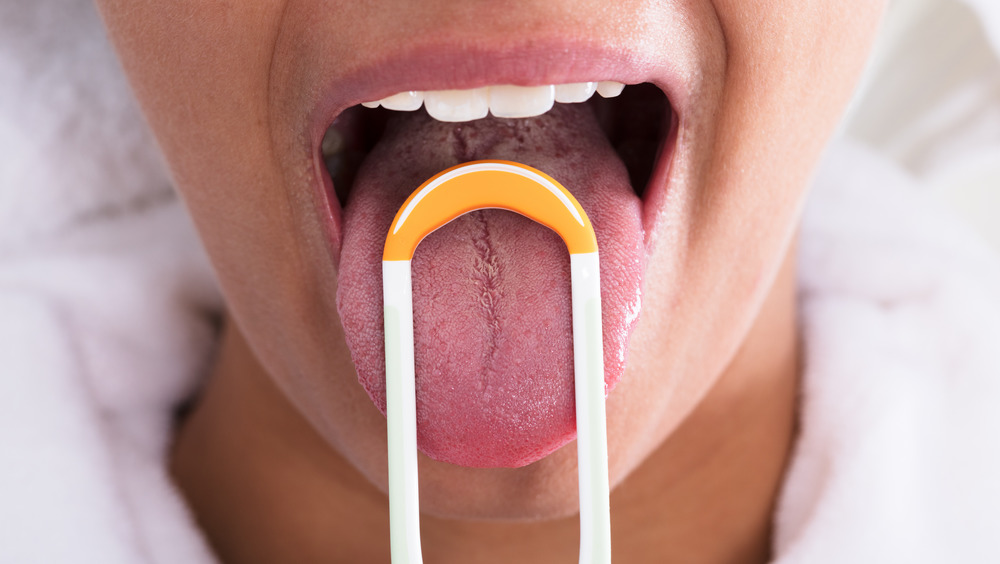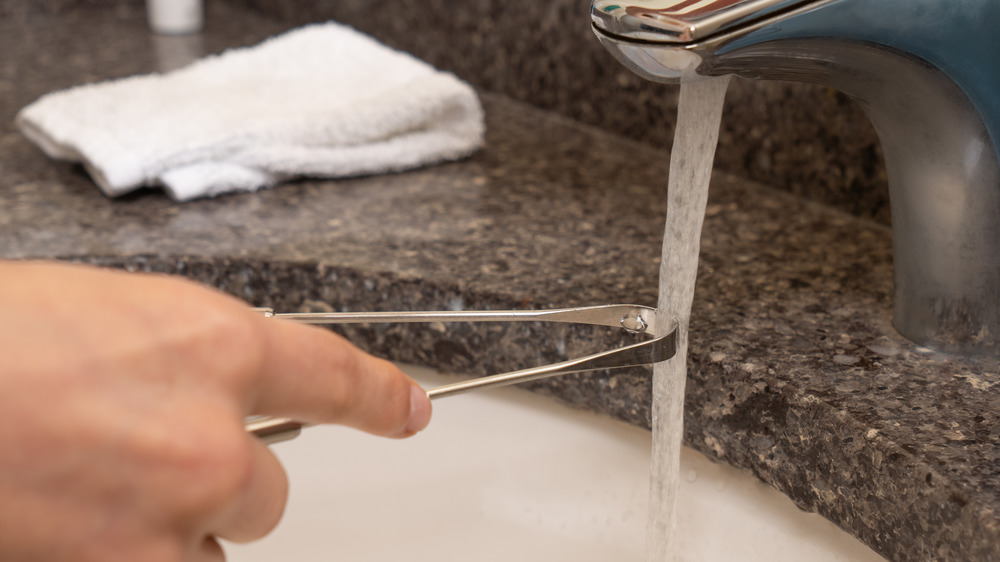The Real Reason You Should Start Scraping Your Tongue
If you brush your teeth morning and night, you may be surprised to learn that you're still only doing half the job. Tooth brushing doesn't do much to remove the bacteria that accumulates on your tongue (via Cleveland Clinic). Scraping your tongue helps remove all the toxins that accumulate overnight (better known as that weird taste you have when you wake up in the morning).
It's a simple practice, but an effective one. According to a study in the Journal of Periodontology, tongue scrapers were 30 percent more effective in removing volatile sulfur compounds than a toothbrush alone. These compounds, often abbreviated as VSCs, are linked to the development of halitosis. In addition to making your breath smell bad, volatile sulfur compounds also provide a ripe breeding ground for bacteria, making it easier for gum disease to root and kill off healthy periodontal tissue (via Today's RDH).
Why should I start scraping my tongue?
Although it's just gaining mainstream attention, tongue scraping is an ancient practice rooted in Ayurveda (via Kripalu Center). Ayurveda practitioners consider the tongue to be an important indicator of the body's overall health, with each section corresponding to a different internal organ. The color and consistency of the coating on your tongue each morning can give you insights into your body's overall health. It can also provide clues on how well your food is digesting.
Fortunately, if you're looking to add this practice to your daily routine, it's relatively simple and inexpensive to start. Tongue scrapers generally come in plastic or stainless steel and are widely available for under $10.
To remove the toxin-filled coating, simply pull the scraper from the back of your tongue to the tip, applying light pressure as you go (via Healthline). You should rinse it off after each scrape. Make sure it's been thoroughly cleaned and dried before you store it. You should also periodically check to make sure your scraper is in good condition.
With regular practice, you'll become accustomed to what normal accumulation looks like. If your tongue is discolored, painful, or swollen, reach out to a doctor right away.


